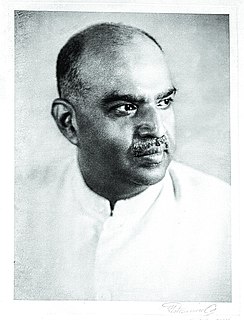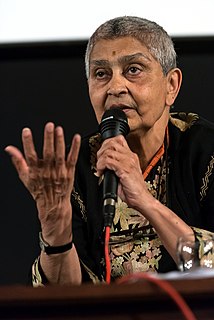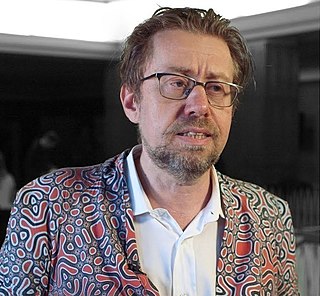A Quote by Ralph Waldo Emerson
The connection between our knowledge and the abyss of being is still real, and the explication must be not less magnificent.
Related Quotes
Research at the subatomic quantum level reveals an invisible connection between all particles and all members of a given species. This oneness is being demonstrated in remarkable scientific discoveries. The findings show that physical distance, what we think of as empty space, does not preclude a connection by invisible forces. Obviously there exist invisible connections between our thoughts and our actions. We do not deny this, even though the connection is impervious to our senses.
It's very important to distinguish between what most people in the West think about knowledge, and what the Indian concept of knowledge is. In the West the knowledge is something that is tangible, is material, it is something that can be transferred easily, can be bought and sold; or as in India real knowledge is something that is a living being - is a Vidya.
Immediate knowledge tells us only that God is, not what he is. But if God is not an empty Being beyond the stars, he must be present in the communion of human spirits, and, in his relation to these, he is the One Spirit who pervades reality and thought. Hence there can be no final separation between our immediate consciousness of him and our mediated knowledge of reality.
What we deplore is not that the gate of western knowledge was thrown open to Indians, but that such knowledge was imported to India at the sacrifice of our own cultural heritage. What was needed was a proper synthesis between the two systems and not neglect, far less destruction, of the Indian base.
In all matters of opinion and science ... the difference between men is ... oftener found to lie in generals than in particulars; and to be less in reality than in appearance. An explication of the terms commonly ends the controversy, and the disputants are surprised to find that they had been quarrelling, while at bottom they agreed in their judgement.
Deconstruction seems to offer a way out of the closure of knowledge. By inaugurating the open-ended indefiniteness of textuality-by thus 'placing in the abyss' (mettre en abime), as the French expression would literally have it-it shows us the lure of the abyss as freedom. The fall into the abyss of deconstruction inspires us with as much pleasure as fear. We are intoxicated with the prospect of never hitting bottom
Real artists find answers. The knowledge of the artisan is within the confines of his skills. For example, I know a lot about lenses, about the editing room. I know what the different buttons on the camera are for. I know more or less how to use a microphone. I know all that, but that's not real knowledge. Real knowledge is knowing how to live, why we live, things like that.
There is a close connection between socio-political development, the struggle between social classes and the history of ideologies. In general, intellectual movements closely reflect the trends of economic developments. In communal society, where there are virtually no class divisions, man's productive activities on outlook and culture is less discernible. Account must be taken of the psychology of conflicting classes.
As a German philosopher writing in the aftermath of the Nazi regime, Marcuse understood the sleep inducing force of indoctrination, its power to make people forget and forfeit their own real interests. "The fact that the vast majority of the population accepts, and is made to accept, this society does not render it less irrational and less reprehensible," he wrote. "The distinction between true and false consciousness, real and immediate interest still is meaningful."
Now I wonder what our knowledge has in common with God's knowledge according to those who treat God's knowledge... Is there anything else common to both besides the mere name? ...there is an essential distinction between His knowledge and ours, like the distinction between the substance of the heavens and that of the earth.










































